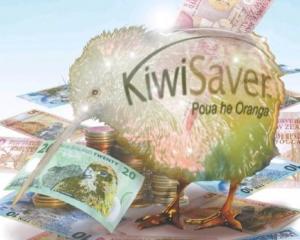
From that date, the contribution rates for both employees and employers will increase from the present 2% to 3%.
Polson Higgs taxation partner Michael Turner last night said that was a significant concern for employers who did not have a lot of cash to throw around.
Also, Finance Minister Bill English announced in yesterday's Budget that the employer contribution would be taxed from July 1, adding another layer of compliance costs.
"This is the biggest tax issue in the Budget," Mr Turner said.
"Unless the economic environment improves before 2013, employers will be looking at wage offers. Instead of a 3% wage rise, employees may face a 2% rise because of the higher KiwiSaver contribution."
Forsyth Barr superannuation specialist Damian Foster said it was disappointing to see the tax-free status removed from the employer contributions but it was encouraging to see the minimum savings rates increase to 3%.
"We're still a long way off competing with the 9% Australia offers, but this is a step in the right direction and likely to pave the way for further increases in years to come.
"I can't see it staying at just 3% for too much longer," he said.
Deloitte tax partner Peter Truman said the announcement on KiwiSaver was deceptive and not the benefit it appeared at first glance.
The increase in employer subsidy would not result in any more money going into the employee account from the employer, as the employer contributions would be taxed.
The burden of the increase fell on employers who used staff as their resource in the productive economy. If a business used machines, not staff, to make its money, it would be better off than a worker-intensive business.
He also predicted reduced wage increases.
"It's another cost loaded on a sector of employers who are already under significant financial change. It's a bit like a targeted tax on businesses that employ staff to operate their business," he said.
Revenue Minister Peter Dunne said the changes ensured KiwiSaver remained an attractive and subsidised savings option that was financially sustainable into the future.
"We believe most people will find 3% affordable and the employer and Government contributions, alongside the $1000 kick-start payment, will continue to offer a very attractive rate of return for the money employees put in themselves."
The changes to KiwiSaver would save $2.6 billion over four years, he said.
Taxing employer contributions to KiwiSaver at the employee's marginal tax rate made sense.
About half of the benefit of the present arrangements went to the top 15% of income earners, who got a larger tax break because of their higher marginal income-tax rate, Mr Dunne said.
Massey University Associate Prof Jane Parker said the changes would make KiwiSaver unaffordable to many low-income earners, and women in particular.
The higher level of worker contributions might put people off paying into the scheme.
"It will be the low- to middle-income earners who bear the brunt of this, and these include women, Maori and Pacific Islanders."
Saving it
• $1000 kick-start remains.
• Compulsory contributions increase to 3%.
• Employer contributions taxed.
• Government saves $2.6 billion over four years.
• Wage offers will be at risk.






